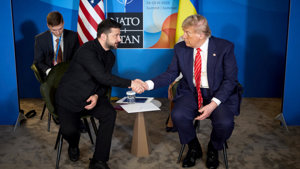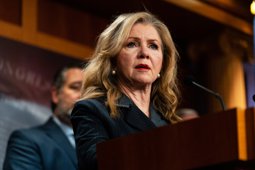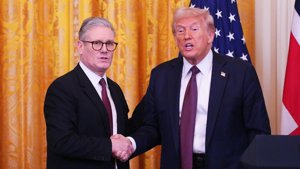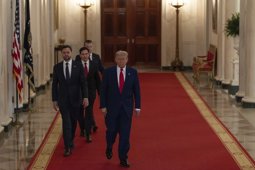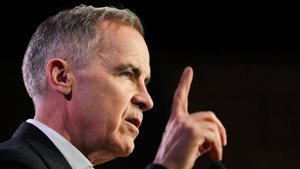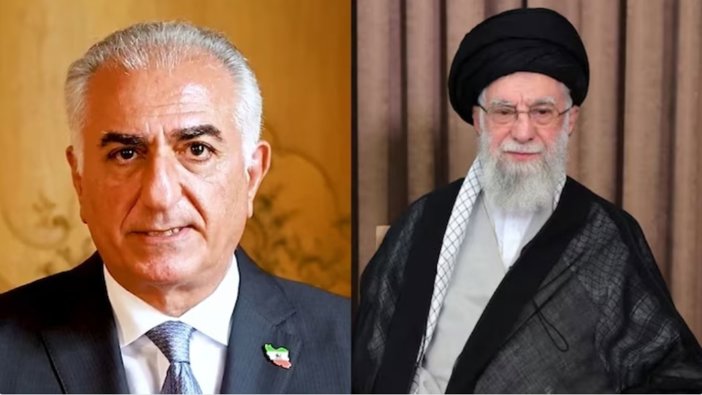
Exiled Prince Calls for End of Iran’s Islamic Republic
Exiled Prince Reza Pahlavi calls for military defection and a peaceful transition as he warns the Islamic Republic is collapsing.
Pahlavi Proposes Democratic Transition, Warns Regime is Collapsing
Iran’s exiled crown prince, Reza Pahlavi, has declared that the Islamic Republic stands on the brink of collapse and urged the Iranian people and military to unite for a democratic transition. Speaking at a press conference in Paris, Pahlavi, the eldest son of the late Shah Mohammad Reza Pahlavi, called this moment “our Berlin Wall moment,” asserting that the foundations of the 46-year regime are shaking as the military fractures and the people rally together.
Pahlavi cited credible reports that Supreme Leader Ayatollah Ali Khamenei’s family—and the families of other senior officials—are making preparations to flee Iran. As U.S. military strikes on Iranian nuclear sites intensify, Khamenei has reportedly taken shelter in a bunker, cutting off all electronic communications to his commanders, relying only on a trusted aide to deliver orders.
Warning that the West must not offer the regime a lifeline, Pahlavi said, “If the West throws the regime a lifeline, there will be more bloodshed and chaos—because this regime will not submit or surrender after it has been humiliated. As long as it is in power, no country and no people are safe: whether on the streets of Washington, Paris, Jerusalem, Riyadh or Tehran.” He argued that only a peaceful and secular democratic transition could secure lasting peace in Iran and the wider region.
Call for Military Defection, Promise of Justice
Pahlavi addressed the Iranian military, police, and security services, inviting those loyal to the nation—not the regime—to join the people in their quest for freedom. “There is a future for you in a democratic Iran if you join the people now,” he said, announcing the creation of a secure channel for military and police personnel to communicate directly with his team.
Pahlavi accused Khamenei of hiding in safety while using Iranian citizens as “human shields.” He said, “Seeing the images of the people of Tehran forced to flee our beautiful capital, the explosions in Isfahan, the fires along the Persian Gulf, all fill me with pain. But more than pain, I am filled with anger because this war is the result of the selfishness, hatred, and terror of one man: Ali Khamenei.” Pahlavi called on Khamenei to step down, promising a fair trial and due process—“more than you have ever given any Iranian.” He also vowed that senior regime officials would face justice, but without repeating mistakes seen in other failed transitions.
Pahlavi said he is not seeking power but is ready to help lead the country to stability, freedom, and justice. He proposed convening a national unity summit of activists, dissidents, business leaders, professionals, and experts to develop a roadmap for a democratic transition. He promised that the ultimate form of Iran’s future democracy would be decided by a national referendum.
Roadmap for National Renewal and International Concerns
Outlining a three-phase plan for economic reconstruction and social stabilization, Pahlavi said his team would soon publish details for the first 100 days after the regime’s collapse. He emphasized that Iran’s territorial integrity, individual liberties, and separation of religion and state must be the foundation of the new era. He is assembling international investors, entrepreneurs, and experts who believe in Iran’s potential and are ready to help rebuild.
While recognizing the destruction of key nuclear sites at Natanz, Isfahan, and Fordow, Pahlavi warned that military action alone would not guarantee peace or end the regime’s nuclear ambitions. He said, “The regime, enraged and emboldened, will be seeking revenge and can acquire nuclear weapons from other rogue regimes like North Korea.” He reiterated that only true political change can deliver lasting security.
Prior to recent U.S. military intervention, President Donald Trump reportedly explored diplomatic solutions, working with Turkey and offering high-level meetings with Iran’s president, but the Iranian leadership did not engage. Pahlavi concluded by pledging to serve the Iranian people at this critical moment, offering hope for a peaceful, just, and democratic future.

